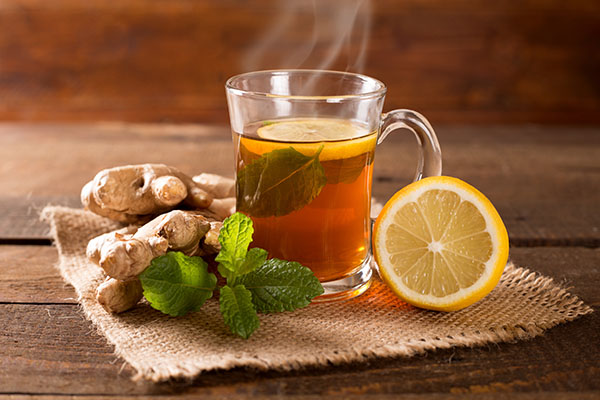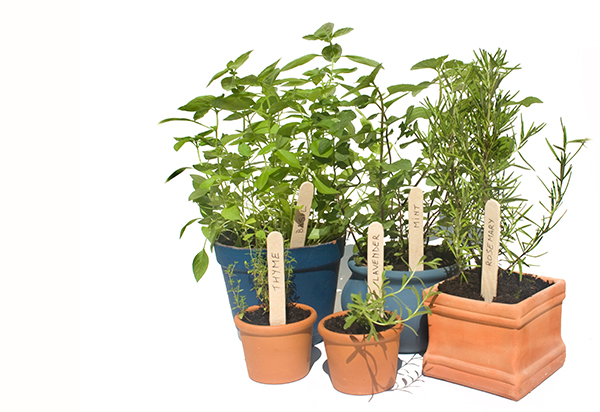
If you or someone in the family has a cough, try natural remedies like honey or herbal teas instead.
But if cough medicines don't work, why do people spend billions of dollars annually on over-the-counter (OTC) products to get rid of a cough?
According to Dr. Norman Edelman, a senior scientific advisor at the American Lung Association, people with a cough are often desperate to get some relief.
According to Edelman, there isn't "good evidence that cough suppressants and expectorants help with the cough." Worse, many cough syrups on the market contain harmful ingredients, such as artificial colors or flavors and sweeteners like high-fructose corn syrup.
Coughing may have underlying causes
Did you know that coughing is therapeutic?
Coughing is the body's way of trying to eliminate mucus or foreign materials from your lungs and upper airway passages. You also cough as a reaction to something that is irritating your airway.
A cough is a symptom, not a disease. When you find out the underlying cause, you can better deal with a cough.
A productive cough produces mucus or phlegm. It's best not to suppress this type of cough because you want to clear the mucus or phlegm.
Productive coughs are often associated with viral illnesses like the common cold, lung or upper airway infections (e.g., bronchitis, pneumonia or sinusitis), postnasal drip, chronic lung diseases (e.g., chronic obstructive pulmonary disease), gastroesophageal reflux disease and smoking.
Meanwhile, nonproductive coughs can occur with the common cold, allergies, asthma, bronchospasm, the use of angiotensin-converting-enzyme (ACE) inhibitors (such as captopril, enalapril or lisinopril) and exposure to environmental irritants.
Why cough medicine isn't recommended for children
While people of all ages can get a cough, parents often worry when children start coughing.
If you have young kids at home, keep these tips in mind before giving them cough medicine:
Don't give cough or cold medication to a child younger than two years old. The American Academy of Pediatrics recommends avoiding cough or cold medicine in children younger than six years old.
Most of the time, giving your child cough medicine won’t make the cough go away faster than if you did nothing at all. Edelman explained that the medicine has little to do with a cough disappearing, which it will usually do on its own.
Cough medicine may cause different side effects. For example, the OTC drug dextromethorphan can cause confusion, constipation, dizziness, drowsiness, nausea and vomiting. Guaifenesin may cause side effects like nausea and vomiting.
If you give cough medicine to a child older than two, never give more than one drug with the same active ingredient, such as a decongestant or pain reliever. This may cause an overdose.
Never give children antibiotics for a cough because they won’t work. If you give a child antibiotics, it can lower his or her resistance to future infections.
The same guidelines apply to adults, with age adjustments.
There hasn’t been a new effective development in cough treatments for more than half a century. Research has been conducted to provide proof that common OTC drugs sold to treat coughs, such as dextromethorphan and guaifenesin, are effective.
However, these studies haven't proven that cough medicines do work. Instead, the results have revealed that there is no proof that they do.
Natural remedies for cough
Instead of risking your health with conventional cough medicine, try these natural remedies that aren't linked to dangerous side effects.
Fenugreek
Fenugreek is a culinary and medicinal herb that can be used as a tea and as a gargle to soothe your throat and cough.
Fenugreek is bitter so try adding a bit of honey to your cup of tea. Let the tea cool before gargling.
Herbal tea
One study published in the Journal of Herbal Pharmacotherapy has revealed that a mixture of eight herbs (anise, black seed, caraway, cardamom, chamomile, fennel, licorice and saffron) provided significant improvements in cough intensity and frequency among people with allergic asthma.
Drinking tea alone or with lemon and honey can help soothe a productive and nonproductive cough.
Aside from the herbal teas already mentioned, other teas that can help relieve a cough include:
- Elderberry tea
- Green tea
- Lemon tea
- Orange tea
- Peppermint tea
- Thyme tea
Young children are more likely to enjoy the taste of orange, lemon or peppermint tea.
Honey
Honey is ideal for children two years and older and adults.
In one study, researchers worked with 105 young volunteers ages two to 18. The researchers compared honey with no treatment and honey-flavored dextromethorphan to study its effect on coughing during the night and sleep quality.
Parents of the volunteers rated honey as providing the best symptomatic relief.
To treat a cough, add organic honey or fresh lemon juice to herbal tea. Instead of honey, give agave syrup to children younger than one year.
Peppermint
If you don't like peppermint tea, you can still benefit from the menthol in peppermint vapors.
Add four to five drops of peppermint oil to eight ounces of hot water in a shallow bowl. Drape a towel over your head and inhale deeply. Breathe in the soothing vapors for several minutes. (Related: Cures from nature’s medicine cabinet: Effective home remedies for pain, coughs and other common complaints.)
Marshmallow
Marshmallow (Althaea officinalis) is an ancient remedy for cough and sore throat. The herb contains a substance called mucilage that helps soothe the throat.
Dried marshmallow leaves may be used in fluid extracts, infusions, teas and tinctures. Marshmallow roots are available dried, peeled or unpeeled in capsules, creams, cough syrups, extracts (dry and fluid), ointments and tinctures.
Marshmallow is not recommended for young children.
Probiotics
Probiotics are beneficial bacteria in your gut. While they don’t reduce coughing directly, they have a significant impact on the bacterial population in your gut.
Probiotics can support your immune system and this can be beneficial if you have a cold and cough.
Slippery elm
Slippery elm (Ulmus fulva) has been used in the past as a traditional as an oral herbal remedy for cough, diarrhea, sore throat and stomach problems.
Like marshmallow, slippery elm contains mucilage that helps soothe the throat.
To treat a cough, look for slippery elm tea or lozenges that are both made from the herb's inner bark.
If you're sick, avoid conventional cough medicines. Instead, try natural remedies like herbal tea or a fenugreek gargle.
Watch the video below to learn about the other health benefits of peppermint essential oil.
This video is from the Health Ranger Store channel on Brighteon.com.
More related stories:
Survival medicine: 5 Home remedies for sore throat.
Feeling the sniffles? Check out these herbs for allergy relief.
Thai black ginger found to delay arthritis progression and suppress inflammation.
Sources include:
Please contact us for more information.






















